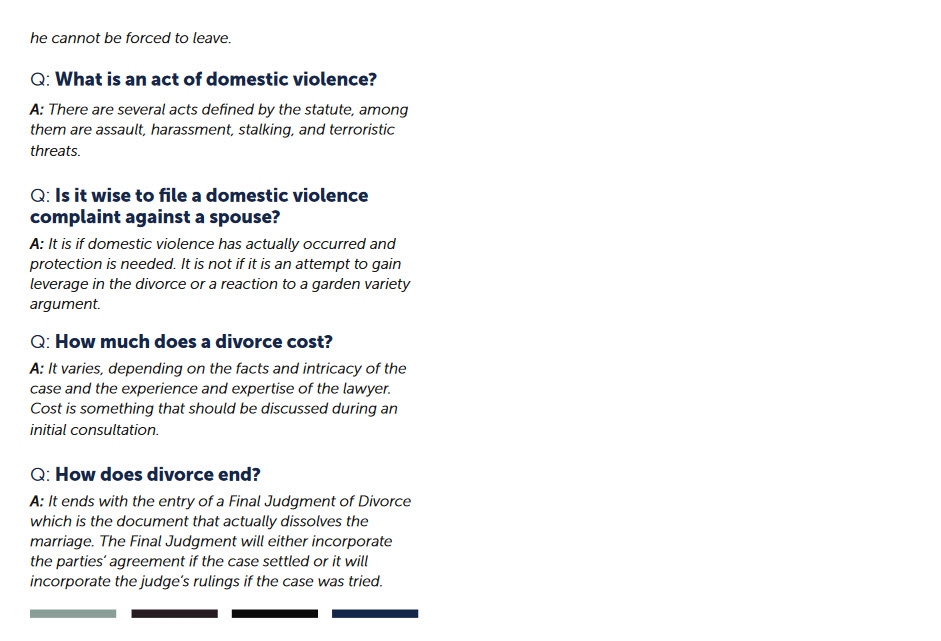Q: What are the grounds for divorce in New Jersey? A: There are several traditional fault grounds, but the most common ground is irreconcilable differences, which is considered a no-fault ground.
Q: Does fault matter? A: Except in the most egregious cases, like the attempted murder of a spouse, the Supreme Court has ruled that fault is irrelevant to economic issues.
Q: How long will it take to get a divorce? A: Although it varies, depending on the facts and complexity of each case, most divorces take ten to fourteen months from start to finish.
Q: Will there be an opportunity to settle the case? A: Yes, several. Direct negotiations between the parties and their attorneys most often lead to settlements. However, several other opportunities exist – Matrimonial Early Settlement Panels (MESP), Economic Mediation (Court Ordered) and Mediation (by agreement of people who need more help to settle, because of the emotional, factual and/or legal complexity of the case).
Q: Must spouses live under the same roof while going through a divorce? A: Yes or no. No law requires it. Often economics dictate, leaving both spouses to share one household.
Q: Can one spouse be forced to leave? A: Again, the answer is yes or no. Unless one spouse commits an act of domestic violence,
continued on next page >>he cannot be forced to leave.
Q: What is an act of domestic violence? A: There are several acts defined by the statute, among them are assault, harassment, stalking, and terroristic threats.
Q: Is it wise to file a domestic violence complaint against a spouse? A: It is if domestic violence has actually occurred and protection is needed. It is not if it is an attempt to gain leverage in the divorce or a reaction to a garden variety argument.
Q: How much does a divorce cost? A: It varies, depending on the facts and intricacy of the case and the experience and expertise of the lawyer. Cost is something that should be discussed during an initial consultation.
Q: How does divorce end? A: It ends with the entry of a Final Judgment of Divorce which is the document that actually dissolves the marriage. The Final Judgment will either incorporate the parties’ agreement if the case settled or it will incorporate the judge’s rulings if the case was tried.


